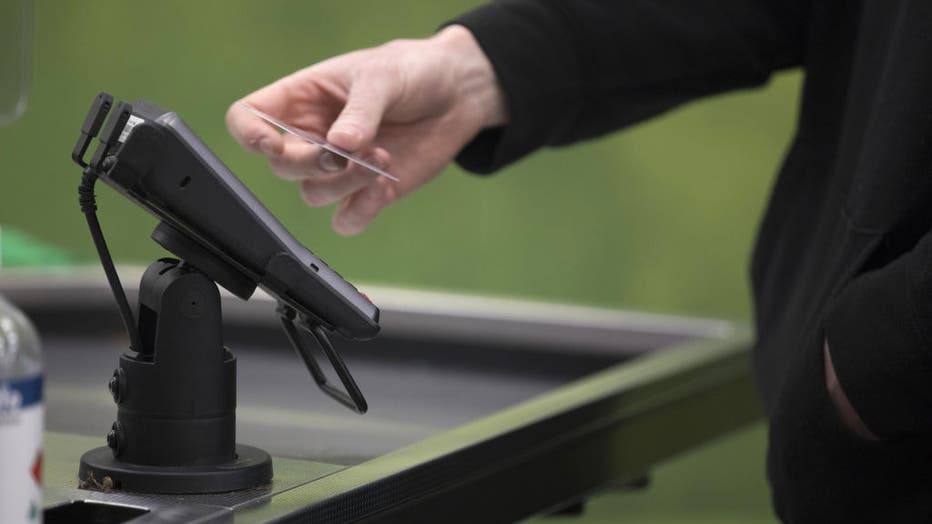New York credit card surcharge law in effect: What to know, how to get your money back
Photo By Yalonda M. James/The San Francisco Chronicle via Getty Images)
NEW YORK - New Yorkers are accustomed to doing the math before checkout to decide whether to pay with cash, credit, or debit.
Many times the final total comes out higher than expected thanks to sales tax and annoying credit card surcharge fees.
New York Governor Kathy Hochul announced a new consumer protection law that will limit credit card surcharges and require businesses to disclose fees before purchase.
The law goes into effect Saturday, Feb. 11, forcing merchants to update signs and language around their fees.
The new law would limit credit card surcharges to the amount charged to businesses by the credit card company and require them to post the total price of an item, including the surcharge, before checkout.
There have long been debates on how and when business owners should and should not apply fees to their services.
Many supporters of the law say it will provide transparency and protect New Yorkers from being misled when making credit card purchases.
The law does not apply to debit cards.
The bottom line
It is completely legal for a business to impose a minimum charge for customers who want to use a credit card for payment. And often, credit card minimums help businesses offset fees associated with credit card processing.
However, many times these fees aren't regulated or clear to the customer.

Photographer: Brent Lewin/Bloomberg via Getty Images
Here are examples of how a business can apply surcharges under the new law:
- The business lists the higher credit card price next to a lower cash price.
- The business lists the credit card price for items and services, then lets customers know they will receive a discount for using cash.
- The business changes all prices to the credit card price.
Here are examples of how a business cannot apply surcharges under the new law:
- The business posts a sign on the door and at the register stating an additional 3.9 percent surcharge will apply for credit card purchases.
- "This business has a 4 percent cash discount incentive built into all pricing. Any purchases made with a credit or debit card will not receive the cash discount and an adjustment in cost will be displayed on your receipt."
- A convenience fee, service fee, administration fee, non-cash adjustment, technology fee, processing fee, etc., is charged to credit card users and added as a separate line item on a customer receipt.
- The price tag of an item shows "$10.00, + 4 percent if paying with a credit card."
There are still questions around how the laws will be enforced.
Hochul says businesses that do not comply with the law will be reported.
The administration is encouraging consumers who experience issues related to credit card pricing to report to the Division of Consumer Protection for a refund or to the Attorney General who will look into the business.
Over the last few years, some states that have banned surcharging on credit card payments have since lifted them due to legal challenges.
Are credit card surcharges legal in every state?
Credit card surcharges are not currently allowed in the following states:
In Connecticut, businesses can be penalized $500 per violation under the law for charging surcharges.

